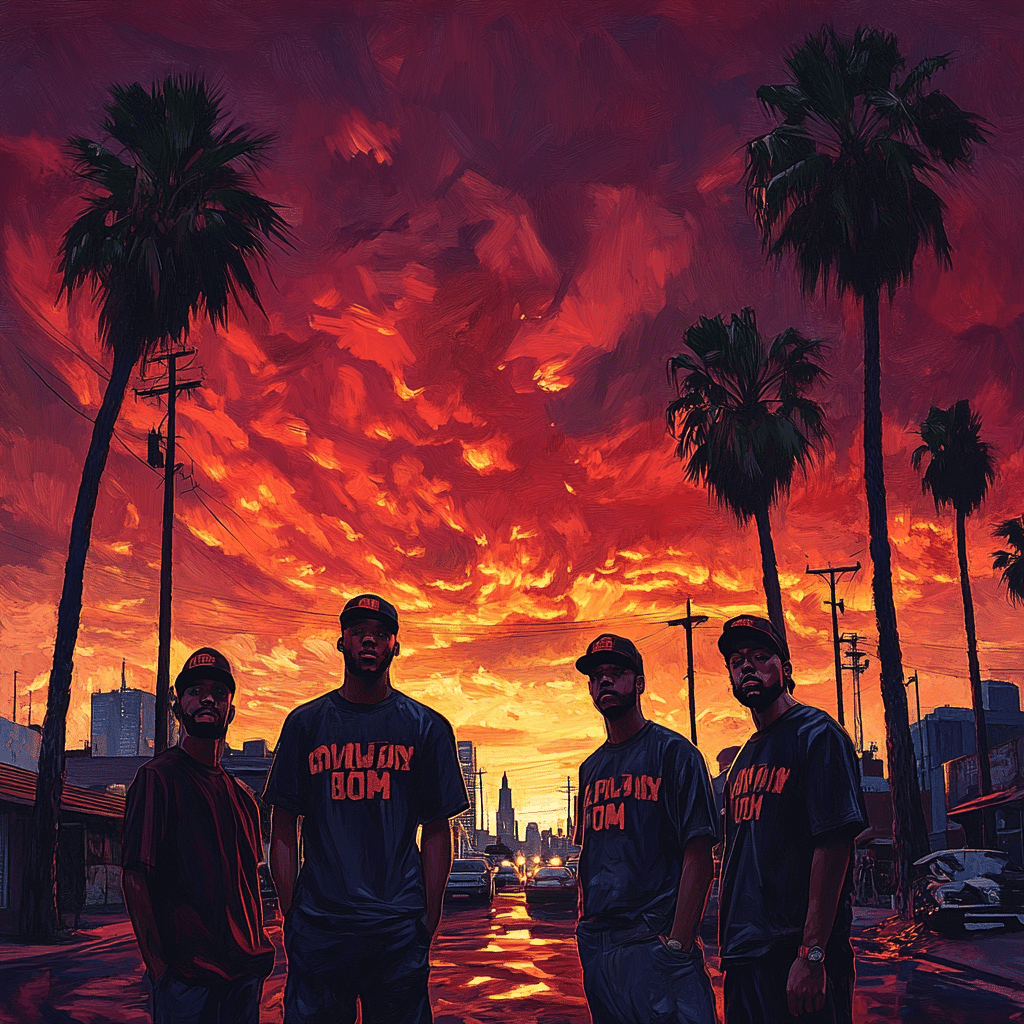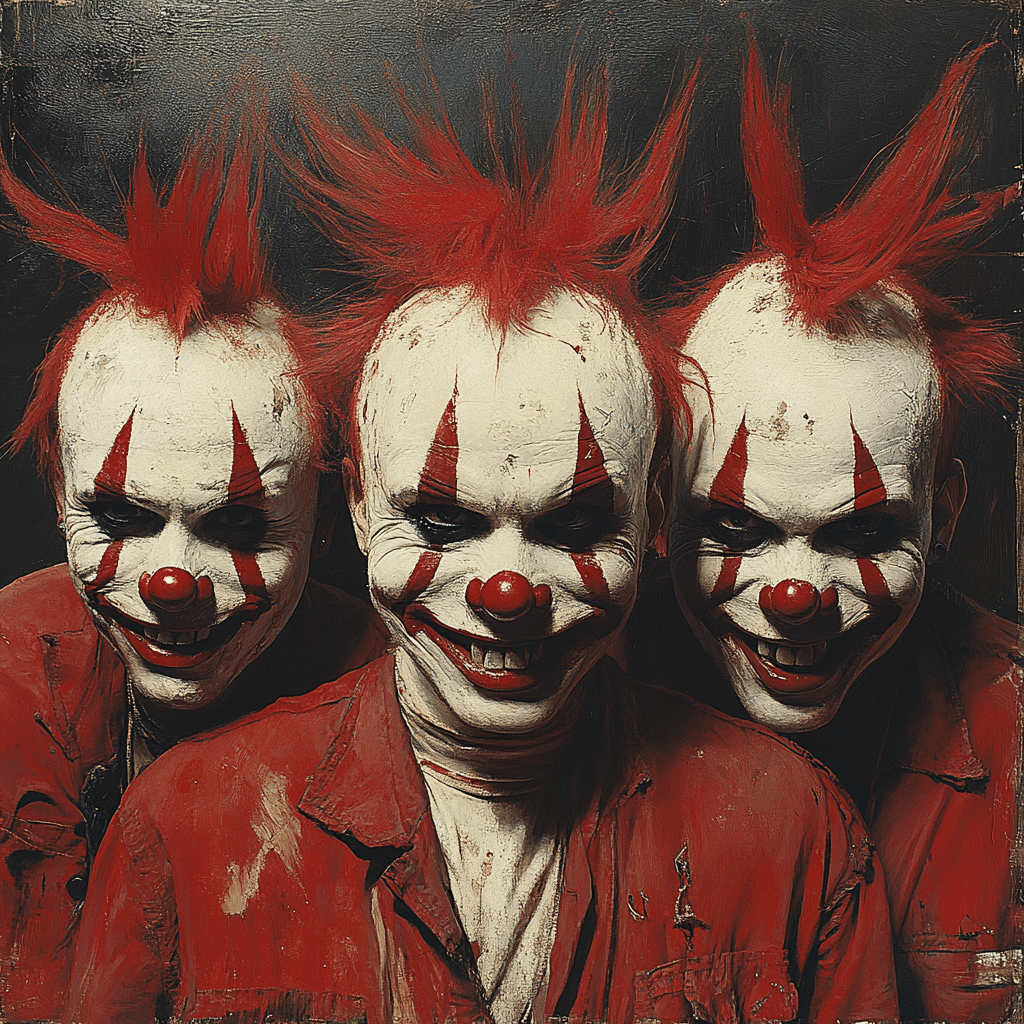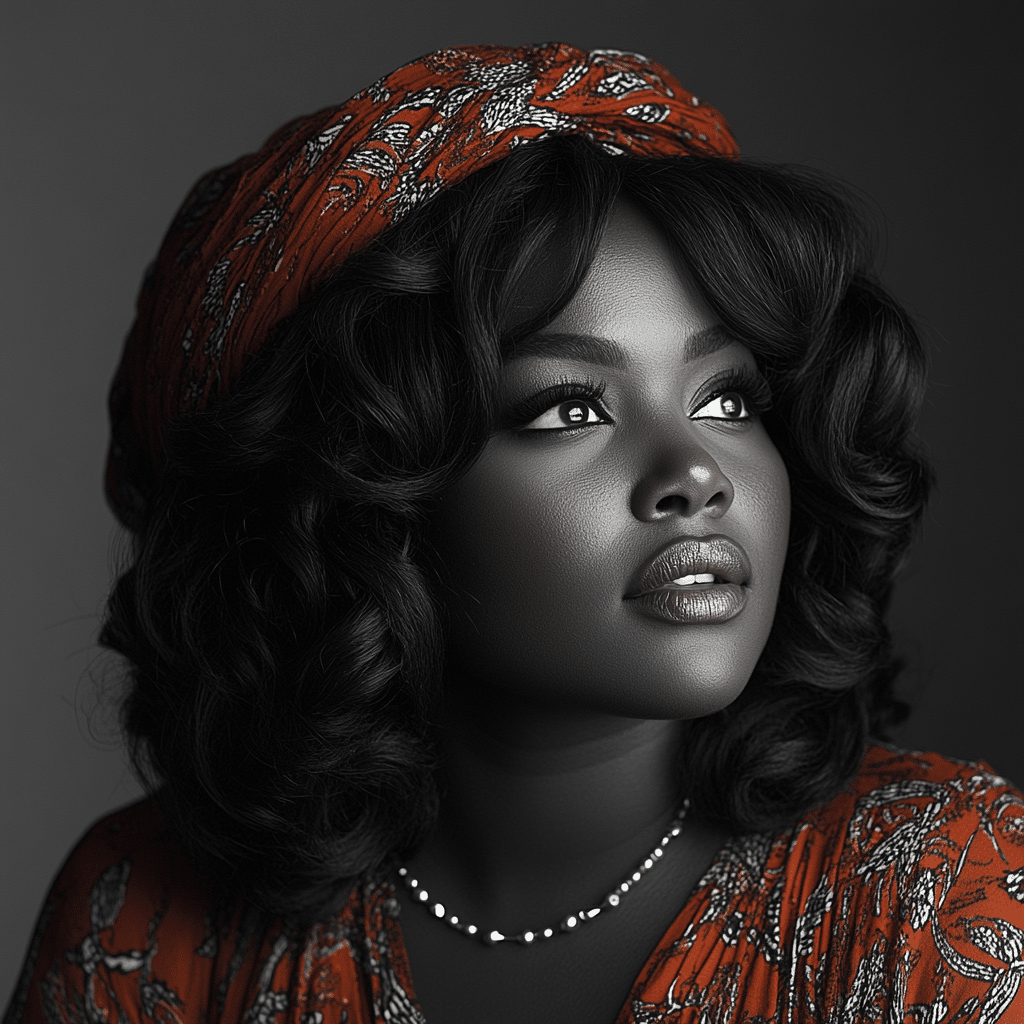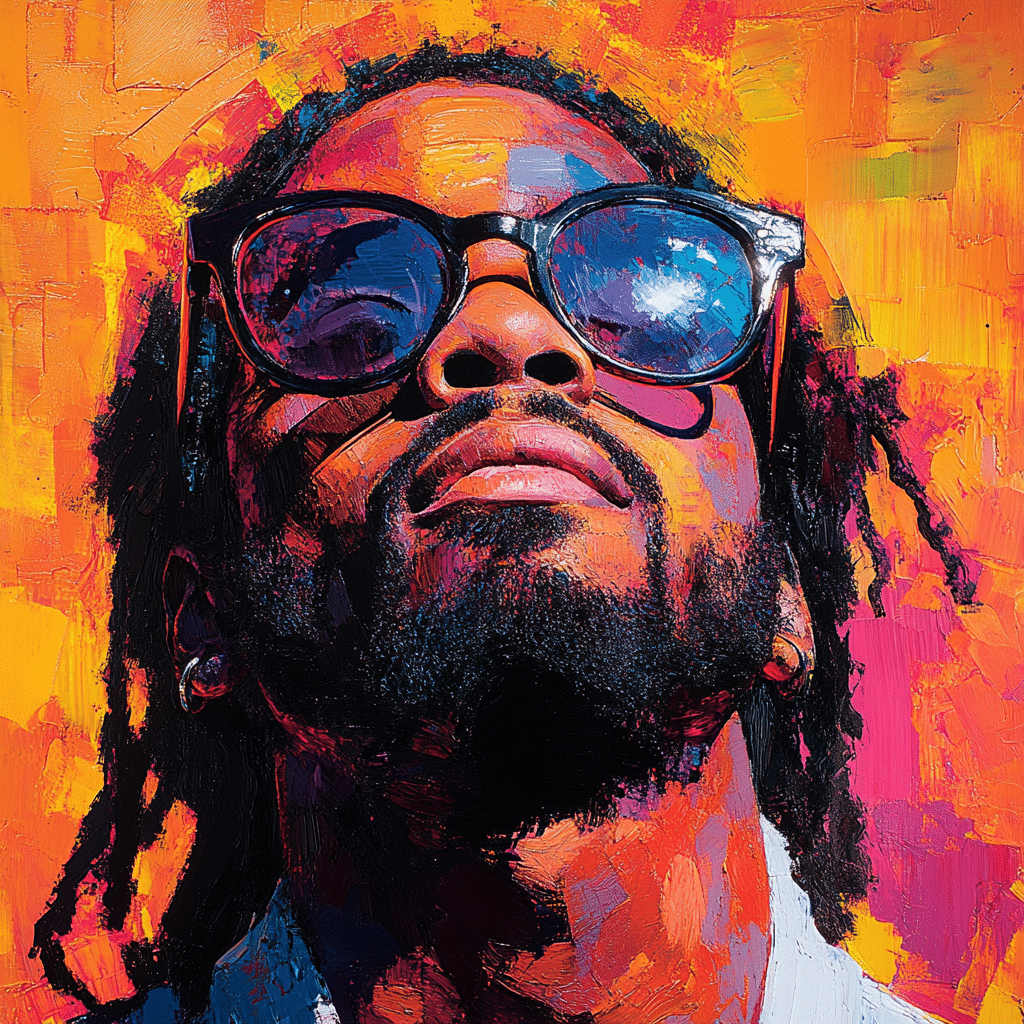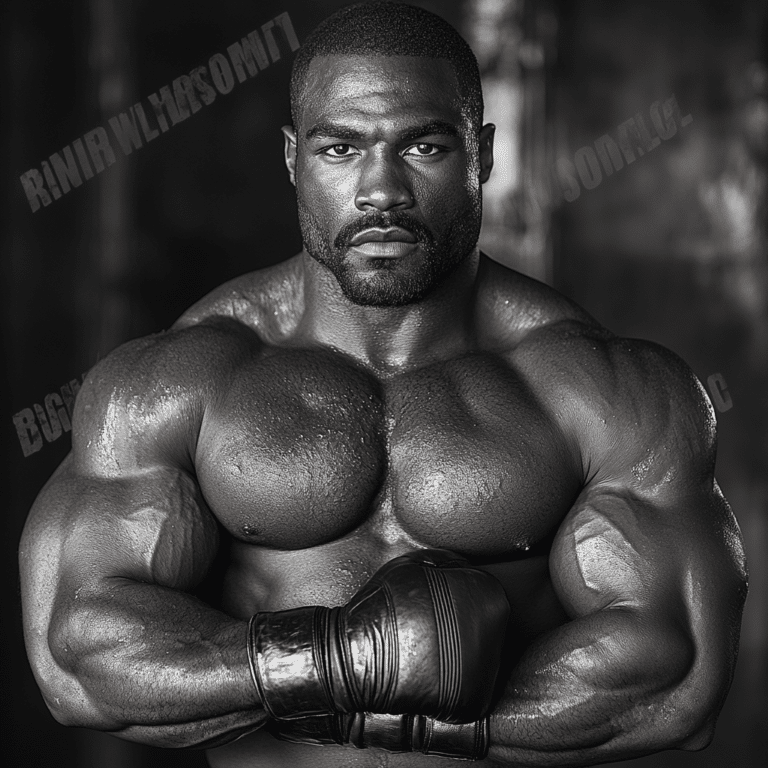Ah, Kurt Loder! The name brings back waves of nostalgia for those of us who grew up in the electric era of rock music and music television. When we think about the impact of MTV News, it’s impossible not to think of Loder. This legendary figure gave a voice to an entire generation of music lovers, shaping how they consumed and connected with rock music. His style was unmistakably insightful yet approachable, blending serious journalism with a rock ‘n’ roll heart. If you were tuning into MTV in the ‘80s and ‘90s, you knew that Kurt Loder was the man delivering the news that mattered.
Loder didn’t just report the news; he broke it! His role in elevating music journalism is monumental. Think about it: when Kurt Cobain tragically passed away, it was Loder who interrupted regular programming to deliver the heartbreaking news. That moment was a turning point—not just for rock music, but for how music journalism is perceived as a vital part of the culture. Loder transformed music reporting from a passive background activity into something meaningful, making it essential viewing for anyone carrying a guitar pick in their pocket.
But Loder’s influence didn’t end there. He created a platform where artists could discuss their work candidly, and fans could find depth in their favorite songs. His interviews weren’t just fluff with star-studded faces; they were engaging explorations of creativity and controversy. From Madonna’s boundary-pushing persona to the emerging grunge movement, Loder connected the dots between music and the cultural zeitgeist.

The Legacy of Kurt Loder in Music Journalism
Kurt Loder’s influence extends far beyond his on-screen appearances. He helped to pioneer a new form of music journalism that blurred the lines between serious reporting and entertaining television. It wasn’t about rote facts and figures; it was about the stories behind the music, the people behind the scenes, and the cultural significance of rock ‘n’ roll. His commitment to covering both mainstream artists and underground acts made for a balanced presentation—a rarity in the world of music media.
Before Loder, television coverage of music often felt superficial. But his thoughtful approach opened avenues for deeper storytelling. Viewers weren’t just getting the latest hits; they were also absorbing insightful criticism and cultural context. Whether you were a fan of Radiohead or a casual listener of mainstream hits, Loder made you feel like you were part of something larger than yourself. This legacy of insight continues to inspire generations of music journalists today.
Kurt Loder’s robust reporting style meant that even casual viewers became more informed fans. If Loder covered a new album, it was an instant must-listen. His relentless pursuit of the truth—whether that meant addressing censorship issues or diving into the plight of struggling artists—gave him a credibility that few could match. In a world overrun by sensationalism, he showed us that music journalism could be both entertaining and enlightening.

7 Pivotal Moments Highlighting Kurt Loder’s Influence
When Kurt Loder started with MTV, music news was mostly fluff pieces and commercial spots. His arrival marked the beginning of serious music journalism on television. At a time when music television was still finding its feet, Loder helped to create a space where news and music intersected in meaningful ways.
The 1991 VMAs were a showcase of music and rebellion. Loder’s passionate coverage allowed fans to peek behind the curtain, connecting them to the artists in a way that hadn’t been seen before. Interviews with everyone from Nirvana to the Backstreet Boys made waves, giving voice to a generation’s raw emotions and aspirations.
In the early ’90s, Loder pushed the boundaries by spotlighting emerging names like Pearl Jam and Soundgarden. He helped shift the narrative around alternative rock, ensuring that these bands found their footing on mainstream platforms.
Loder’s 1990 interview with Madonna was groundbreaking; he didn’t shy away from asking the tough questions, leading to candid conversations that shaped public perception. This combination of seriousness and charisma was a hallmark of Loder’s interviewing style.
Loder made waves again when he reported from Woodstock ’94, illustrating the cultural implications of the festival. His commentary went beyond music, connecting it to issues like youth culture and societal change—a hallmark of his reporting.
Over a decade later, Loder’s reflective dialogue with The Who during their reunion tour resonated with fans of all ages. The conversation about legacy and relevance in rock music offered both nostalgia and new insights.
Throughout his career, Loder stood up for artistic expression, especially during controversies like those surrounding Eminem. This advocacy not only supported artists but also shaped broader discussions about music, censorship, and identity.

How Kurt Loder Shaped the Future of MTV and Beyond
Kurt Loder’s impact on MTV wasn’t simply a flash in the pan. His commitment to authenticity and engaging storytelling left a lasting legacy that influenced the future of music journalism. With the rise of digital media, Loder’s principles found new platforms, allowing him to continue advocating for thoughtful commentary and meaningful coverage of music and culture.
From his days on MTV, where his presence was a staple for rock fans, he transitioned into print and digital media. This evolution helped solidify his role as a go-to commentator on all things music—even beyond rock. Issues he highlighted, like censorship and commercialization, are still hot topics in discussions about the music industry today.
So here’s the deal: Kurt Loder isn’t just a name to remember; he’s a beacon of quality journalism in a world that often seems filled with noise. His impact inspires upcoming music critics and journalists to delve deeper, teach listeners, and celebrate the artistry of rock music.

The Enduring Legacy of Kurt Loder: A Musical Beacon
Ultimately, Kurt Loder’s contributions to MTV and music journalism have created a lasting cultural phenomenon. His ability to weave together insights on music, society, and artistic expression has made him a trusted figure in rock history. He’s a figure who understood the power of connecting artists to their fans while also holding the industry accountable.
With his stories, he ensured that the narratives shaping music—and, by extension, our lives—were remembered. Whether you were watching him deliver breaking news or following along on social media, Loder’s enduring legacy is a reminder of the importance of rock music in our cultural tapestry. As we move forward, those inspired by Kurt Loder can look to the future, crafting their own stories in the ever-evolving world of music.
Thank you, Kurt, for being the soundtrack of our youth and the voice that continued to resonate through the years. Your impact is immeasurable, and your legacy is a treasure for music lovers everywhere.
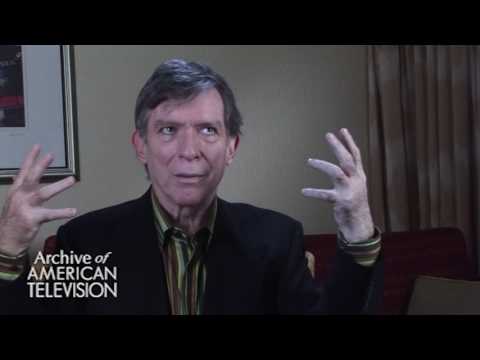
Kurt Loder: A Pillar of MTV News and Rock History
The Man and His Voice
Kurt Loder’s distinctive voice became a signature sound on MTV News, painting vibrant pictures of the music scene for fans across America. His tenure began in 1987, coinciding with a time when rock was evolving rapidly. Loder wasn’t just tackling news headlines; he brought rock history to life. You might remember those days of feasting like a king on a Denny’s t-shirt free breakfast, getting that feeling of nostalgia while tapping into the music he covered.
With a background that included a stint at Rolling Stone, Loder knew the ins and outs of rock ‘n’ roll culture. This background helped him create a bridge between music and social issues, making headlines more than mere announcements. It’s a bit like how a toddler backpack is more than a bag; it’s a rite of passage for little ones embarking on their adventures. Loder understood the significance of being genuine in the entertainment landscape.
A Heart for the Cause
Beyond the glitz and glam of entertainment news, Loder also raised awareness about pressing social topics. His coverage often highlighted veteran housing assistance and various initiatives that many overlooked. It’s refreshing to see someone in his role using platform for change, reminiscent of the community spirit people often find at places like the Windmill Food hall. These moments defined the way we interacted with news and music; Loder combined important societal issues with a love for rock, giving fans reason to think deeper while enjoying their favorite tunes.
Throughout the years, Loder interviewed numerous artists, becoming a crucial part of rock history. His list of guests reads like a who’s who of the music biz! These encounters created iconic moments, blending different cultures just as the diversity seen at the Baltimore Zoo or the eclectic spaces found in Tokyo House reflects. His passion and insight even added depth to films, much like how the cast of “Jamesy Boy” brought the gritty story to life, showcasing the struggles that come with youthful folly.
Kurt Loder’s journey is a testament to the meeting point of music and journalism, making rock history accessible to many and forever changing the way we consume and appreciate both. With his charisma, he didn’t just report the news; he left an indelible mark, much like shining a light on what’s worth watching with “Heavenly Delusion.” His narrative remains woven into the fabric of pop culture, urging us to remember that every song tells a story.

Who announced Kurt Cobain’s death on MTV?
Kurt Loder was the one who announced Kurt Cobain’s death on MTV, breaking into regular programming to tell viewers the heartbreaking news that Cobain had been found dead.
Who hosted MTV News in the 90s?
In the ’90s, MTV News was mostly hosted by Kurt Loder and John Norris, while occasionally the charming Tabitha Soren and Karen Duffy would take the reins, making it a must-watch segment for rock fans.
Where was Courtney Love when Kurt died?
When Kurt died, Courtney Love was in Los Angeles, and there were reports that she was on tour in Europe and returning home afterward.
What was Kurt Cobain’s diagnosis?
Kurt Cobain had a diagnosis of heroin addiction, but he also struggled with depression, which was a significant factor in his life and music.
Who was the first female host on MTV?
The first female host on MTV was Nina Blackwood, who became one of the original video jockeys when the network launched in 1981.
Who originally started MTV?
MTV was originally started by Warner-Amex Satellite Entertainment, which was a joint venture between Warner Communications and American Express in the early ’80s.
What was the very first video ever played on MTV?
The very first video ever played on MTV was “Video Killed the Radio Star” by The Buggles, which aired when the channel launched on August 1, 1981.

